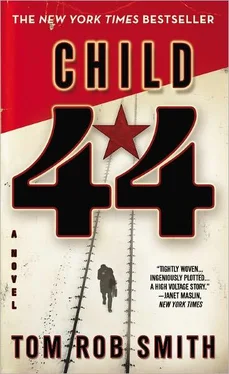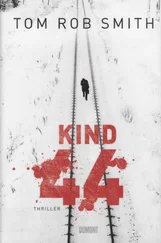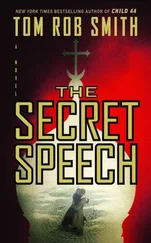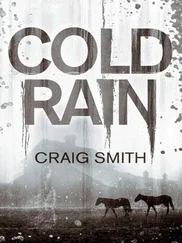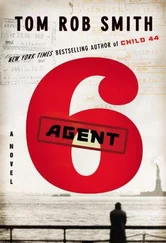Leo turned to face the prisoners. There were pregnant mothers, elderly men too old to survive the Gulags, fathers, brothers, sisters — ordinary, unremarkable, the kind of people that he himself had arrested and taken to the Lubyanka. Now he was forced to ask for their help.
— My name is not important. Before I was arrested I was investigating the murder of over forty children, murders which stretched from the Ural Mountains down to the Black Sea. Boys and girls have been killed. I know that this crime is hard to believe, perhaps even impossible for some of you. But I have seen the bodies for myself and I’m sure they’re the work of one man. He doesn’t kill these children for money or sex or any reason that I can explain. He’ll murder any child, from any town. And he will not stop. My crime was to investigate him. My arrest means he is free to continue killing. No one else is looking for him. My wife and I must escape to stop him. We cannot escape without your help. If you call for the guards, we’re dead.
There was silence. The train was almost at a stop. At any second the doors would slide open, guards would enter, guns at the ready. Who could blame them when faced with the barrel of a gun not to tell the truth? A woman on one of the benches called out:
— I’m from Rostov. I’ve heard of such murders. Children with their stomachs cut out. They are blaming them on a group of Western spies who have infiltrated our country.
Leo replied:
— I believe the murderer lives and works in your city. But I doubt he’s a spy.
Another woman cried out:
— When you find him you’ll kill him?
— Yes.
The train stopped. The guards could be heard approaching. Leo added:
— I have no reason to expect your help. But I ask for it all the same.
Leo and Raisa crouched down among the prisoners. She wrapped her arms around Leo, covering up his bloodstained hands. The doors slid open, sunshine flooded the carriage.
Finding the two bodies, the guards called out for an explanation.
— Who killed them?
They were answered with silence. Leo looked over his wife’s shoulders at these guards. They were young, indifferent. They’d obey orders but they wouldn’t think for themselves. The fact that they hadn’t personally killed Leo and Raisa meant that they hadn’t been given instructions to do so. It had to be done on the sly, through a proxy. Without explicit authorization they wouldn’t act. These guards had no initiative. However, given some slight justification, they might seize the opportunity. Everything depended upon the strangers in this carriage. The guards were shouting, pushing guns into the faces of those nearest them. But the prisoners told them nothing. They selected an elderly couple. They were frail. They’d talk.
— Who killed these men? What happened here? Speak!
One of the guards raised his steel-capped boot above her head. She wept. Her husband pleaded. But neither of them replied to their questions. A second guard moved towards Leo. If he made him stand up he’d see the bloodied shirt.
One of the remaining gang, the man who’d told Leo there was no longer any quarrel between them, got down from his bench approaching the guards. No doubt he’d now claim the reward promised to them. The man called out:
— Leave them alone. I know what happened. I’ll tell you.
The guards stepped away from the elderly couple, stepped away from Leo.
— Tell us.
— They killed each other, because of a card game.
Leo understood that there was a perverse logic to the gang’s refusal to give them up. They were prepared to rape and murder for a small profit. But they were not prepared to snitch, to be a guard’s stool pigeon. It was a question of status. If the other urki , the members of their criminal fraternity, found out they were selling inmates for perks they would never be forgiven. They would probably be killed.
The guards looked at each other. Unsure of what to do, they decided to do nothing. They were in no rush. The journey to Vtoraya Rechka, on the Pacific coast, would take weeks. There would be plenty of opportunities. They would await further orders. They’d come up with another plan. One of the guards addressed the whole carriage.
— As a punishment we will not offload these bodies. Soon, in this heat, they will begin to rot and stink and you will all become ill. Perhaps then you will talk.
Proud of himself, the guard leapt off the carriage. The other guards followed. The door was shut.
After a while the train began to move again. A young man with broken spectacles, peering at Leo through a cracked lens, whispered:
— How will you escape?
He had a right to know. Their escape now belonged to everyone in the carriage. They were all in it together. In reply Leo raised the bloody steel shard. The guards had forgotten to take it back.
Two Hundred and Twenty Kilometres East of Moscow
13 July
Leo was lying flat on the floor, his arm squeezed through the small hole used by the prisoners as a toilet. With the steel shard he scratched at the iron nails fastening the plank to the underside of the carriage. None of the nails were accessible from inside: they’d all been hammered in the underside. The only access point was this small hole not much wider than his wrist. Leo had taken the dead man’s shirt and cleaned the area as best he could. It was not more than a token effort. To reach the three iron nails he was forced to bring his face down flat against the stinking piss- and shit-sodden wood, retching while blindly groping, guided by touch alone. Splinters dug into his skin. Raisa had offered to do the work instead since her hands and wrists were smaller. While this was true Leo had a longer reach and at full stretch it was just possible to reach each of the three nails.
With a strip of shirt tied around his mouth and nose as limited protection from the stench, he picked at the third and last nail, scraping, cutting at the wood, gouging the timber and giving himself just enough space to wedge the tip under the nail-head and lever it out. It had taken many hours to remove two nails since the work had to be interrupted by any prisoner needing the toilet.
This final nail was proving the hardest. Partly that was due to tiredness — it was late, maybe one or two in the morning — but something else was wrong. Leo could get his fingertip under the nail’s head but it wasn’t coming loose. It felt crooked, as if it had been banged in at an angle, the body of the nail bent by the blows. It wouldn’t pull out. He’d have to dig further into the wood, perhaps all the way through. At this realization, that it would take maybe another hour, a wave of exhaustion came over him. His fingers were bloody and raw, his arm ached — he couldn’t get the stink of shit out of his nose. Suddenly the train jolted to the side, he lost concentration, and the steel shard slipped from his fingers, clattering onto the tracks below.
Leo pulled his hand out of the hole. Raisa was beside him.
— Is it done?
— I dropped it. I dropped the shard.
Furious with his own stupidity at discarding the other nails he no longer had any tools.
Seeing her husband’s bloody fingers, Raisa grabbed hold of the plank and tried to lift it. One side of it rose up, fractionally, but not enough to grip underneath it, not enough to pull it free. Leo wiped his hands, looking around for something he might use.
— I have to scratch through the wood and get to the base of that last nail.
Raisa had seen every prisoner comprehensively searched before being allowed on the train. She doubted if anyone had metal implements of any kind. Contemplating the problem, her eyes drifted towards the nearest of the dead bodies. The man was lying on his back, his mouth open. She turned to her husband.
Читать дальше
